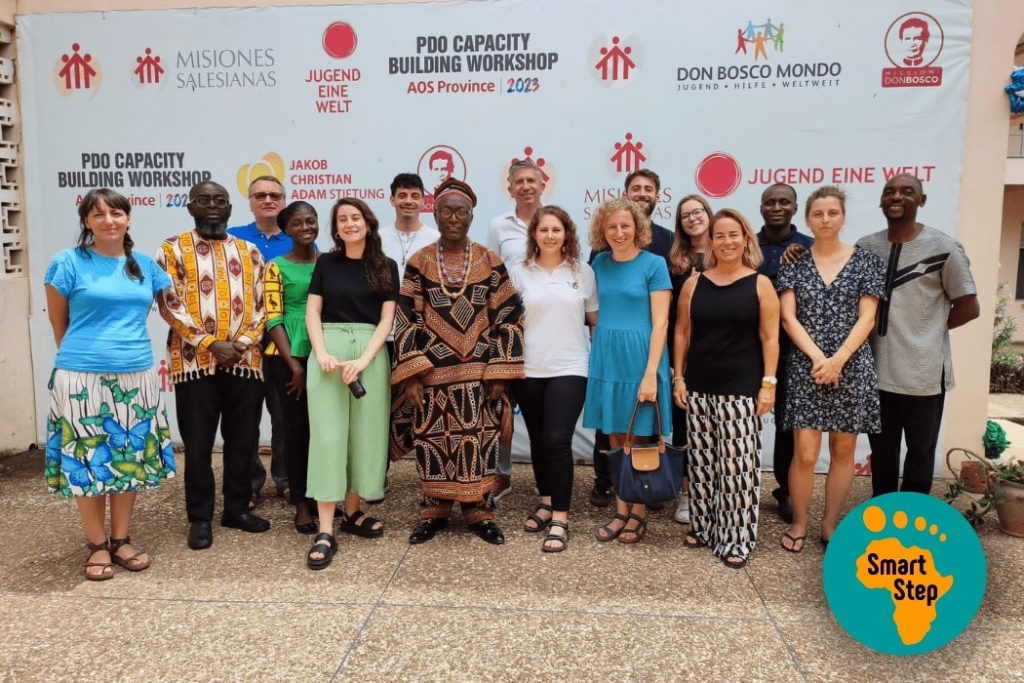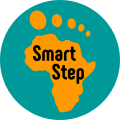
Smart Step celebrated the kick-off meeting of the project in Ghana from the 24th to the 26th of April
The partners of Smart Step, a project co-funded by the European Commission to prepare students in Ghana and Cameroon for entrepreneurship and bridge the gap between the education system and the labor market, celebrated their first in-person meeting from the 24th to the 26th of April in Accra (Ghana). It was hosted by Don Bosco Youth Network and gathered participants from 8 organizations from 5 different African and European countries.
Coordinated by Mundus, Smart Step focuses on capacity and sustainable development in Africa. The goal is equipping teachers and learners with the necessary skills to successfully implement their own business ideas. The project intends to establish a comprehensive and collaborative system of exchange of good practices, learning processes and activities to facilitate mutual knowledge. It also introduces specific training on entrepreneurship to VET teachers and learners, encouraging them to think about sustainable innovation, production and inclusiveness, adapted to their environment.
The aim of this first encounter was to present the project’s methodology and to start working on the first tasks. During the first day, the partners had a welcome session, they visited the facilities of the Don Bosco Technical Institute and then participated in first working sessions. The following days, they continued to work together to have a better understanding of the current state of the entrepreneurship in Ghana as career opportunities for young people and identifying the mismatch between the educational approach and the labor market needs.
Hereinafter, the work of the project is going to be divided in 3 phases. The first task consists of analyzing and understanding the state-of-the-art of entrepreneurship in Ghana and Cameroon. Then, a Knowledge Exchange Platform will be designed and made public. Finally, tools, training modules, and resources will be provided to the VET centers and the local community. Besides, incubators will be created in VET schools to form, guide, and advise the learners.




This publication is co-funded by the European Union. Its contents are the sole responsibility of the Smart Step partners and do not necessarily reflect the views of the European Union.

